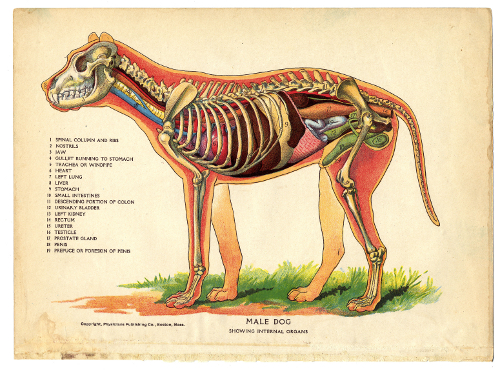
What Is Gallbladder and Bile Duct Inflammation in Dogs?
Your dog had acute appetite loss, lethargy, abdominal pain, and vomiting. You noticed a slight yellowing of their eyes and gums, indicating jaundice, and you took them straight to the vet without any hesitation.
Your veterinarian took a history and ran some tests, and the verdict was gallbladder and bile duct inflammation. Instant panic. But what is this condition, what causes it, and what can you do?
What Is Gallbladder and Bile Duct Inflammation in Dogs?
The gallbladder is a small organ that is attached to the liver and is used to store the bile that is produced by the liver and to release it slowly into the intestines, where it can do its job. When everything is working well, it’s a perfectly balanced system, and you’ll never even notice that your gallbladder (or your dog’s, exists!)
The trouble starts when your dog develops a gall stone, or the bile duct, that transports bile from the liver to the gallbladder, becomes inflamed. This slows or stops the movement of bile from the liver to the gallbladder and onto the digestive system, and when that happens, serious symptoms like the ones that you’ve noticed occur.
These conditions, known as Cholecystitis and Choledochitis, are serious, and do require medical intervention.
What Causes Gallbladder and Bile Duct Inflammation in Dogs?
As we’ve already mentioned, Cholecystitis and Chloledochitis can be triggered by gallstones, but there are other things that can cause your dog to develop this condition. Those things include:
- Improper muscle functioning in the gallbladder may impair the flow of bile.
- Problems in the blood flow to the gallbladder and related organs.
- Trauma to the abdomen or scarring due to other abdominal surgery can also restrict the flow of bile.
- Bacterial infections.
- Irritants in the bile itself can cause inflammation of the duct.
- As a side effect of diabetes.
- An abnormal gallbladder.
- Parasitic infections.
How is Gallbladder and Bile Duct Inflammation Diagnosed in Dogs?
If your veterinarian suspects that the gallbladder or bile duct may be the root cause of your dog’s symptoms, blood and urine samples will be taken. X-rays and ultrasounds will also be used to take a look at the internal workings of your dog’s abdomen.
Because so many conditions can mimic the symptoms of gallbladder and bile duct inflammation in dogs, your veterinarian will spend some time ruling out other potential causes.
These other potential causes could include pancreatitis, gallstones, liver conditions, cancer, bile accumulation, severe cases of gastroenteritis, and peritonitis, among other potential causes.
Are There Any Dog Breeds That Are Prone to This Condition?
So far, no link has been established between gallbladder and bile duct inflammation and any particular breed. This condition is, however, far more common in older dogs, particularly those who have reached “middle age,” and it’s very rare in younger dogs.
Treatment and Prognosis of Gall Bladder and Bile Duct Inflammation in Dogs
The treatment of gallbladder and bile duct inflammation can vary greatly. If the case is mild and caught early, medication to treat infections or dissolve gallstones may be sufficient.
In advanced cases, surgery may be required, and if the gallbladder has already ruptured, emergency surgery may be required.
Dogs that do have this condition may be susceptible to certain types of cancer and will require ongoing treatment and monitoring for an extended period of time.
As with many conditions affecting critical organs and processes, the sooner you seek treatment, the better the prognosis is likely to be, so if you notice any of the signs related to this condition (and in particular if you notice jaundice) consult your veterinarian as quickly as possible.
